Zero-Waste Laundry Options
You can’t eliminate laundry — but you can eliminate the amount of waste you create while cleaning your clothes!
Updated May 31 2019, 6:57 a.m. ET
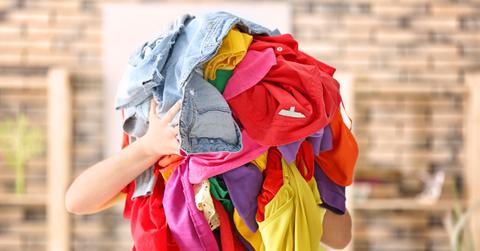
Is it time to give your laundry room a zero-waste makeover? With the average American running anywhere from four to five loads of wash per week, the environmental impact of laundry in the US is a genuine concern. Not to mention the environmental effects of laundry wastewater.
Wastewater is the result of the washing process; it refers to the additional energy, lint, soil, dyes, finishing agents, and chemicals from detergents that leak directly into the environment and contaminate our water systems. In addition to being toxic to wildlife, wastewater can also contribute to eutrophication, when a body of water becomes overly enriched in minerals and nutrients, causing an overgrowth of plants and algae and oxygen depletion in the water.
Using traditional detergents contributes to these environmental issues, as well as creates unnecessary waste. (Think: lots of plastic, unnecessary packaging, and unrecyclable, un-compostable components.) In order to cut the footprint down and reduce the harmful chemicals your wash and the environment are exposed to, there are a few zero-waste amendments you can make to your current laundry routine.
Ready to make your laundry zero-waste? Keep reading for some beginner’s tips!
Consider Washing With Vinegar
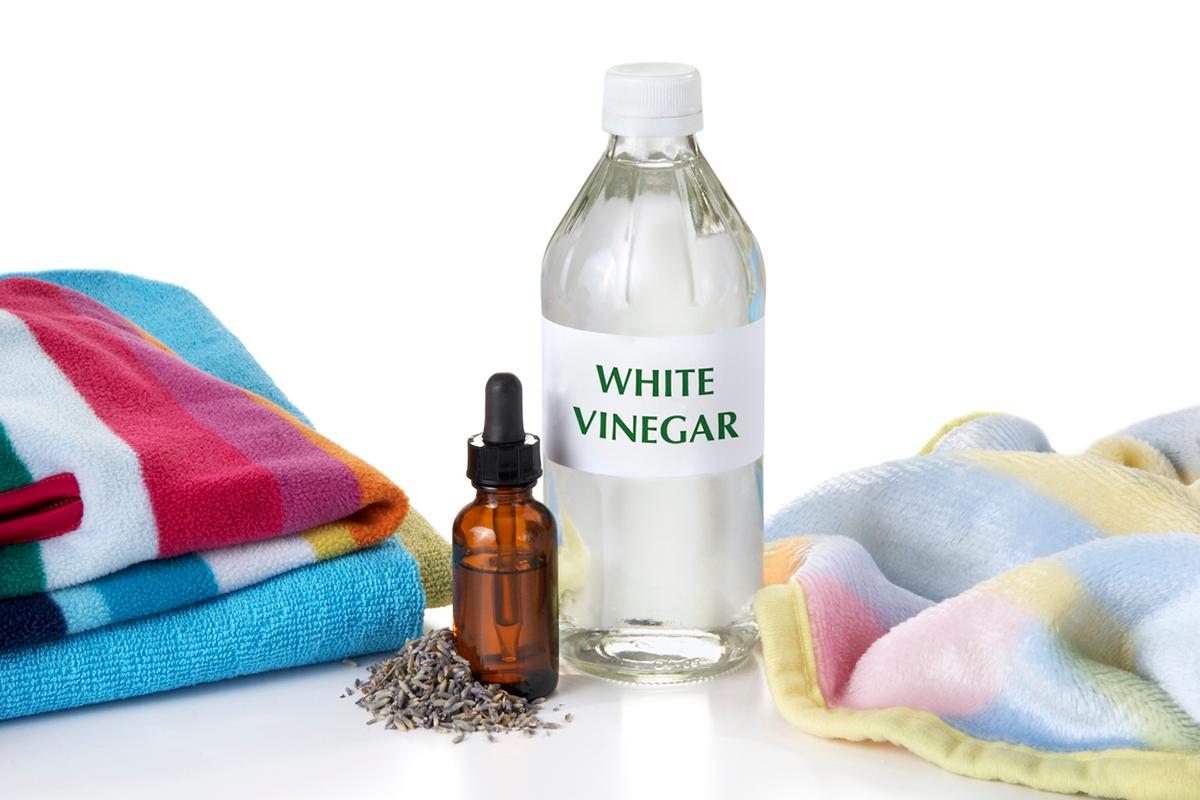
When it comes to laundry, vinegar is a double agent, acting as both a powerful deodorizer and gentle, non-toxic fabric softener. Pour a half cup of distilled white vinegar into your washing machine in place of traditional detergent. To use vinegar as a fabric softener, pour 1 cup of vinegar into the washing machine during the final rinse cycle.
Vinegar can also be used to pretreat stains — just dilute one-half cup vinegar in a gallon of water. Apply directly to the stain with a clean cloth. Then, wash. Vinegar is known to brighten, whiten, and soften clothes. It’s also more gentle on septic tanks, so your plumbing will thank you for making the zero waste switch.
Add Horse Chestnuts to Your Routine
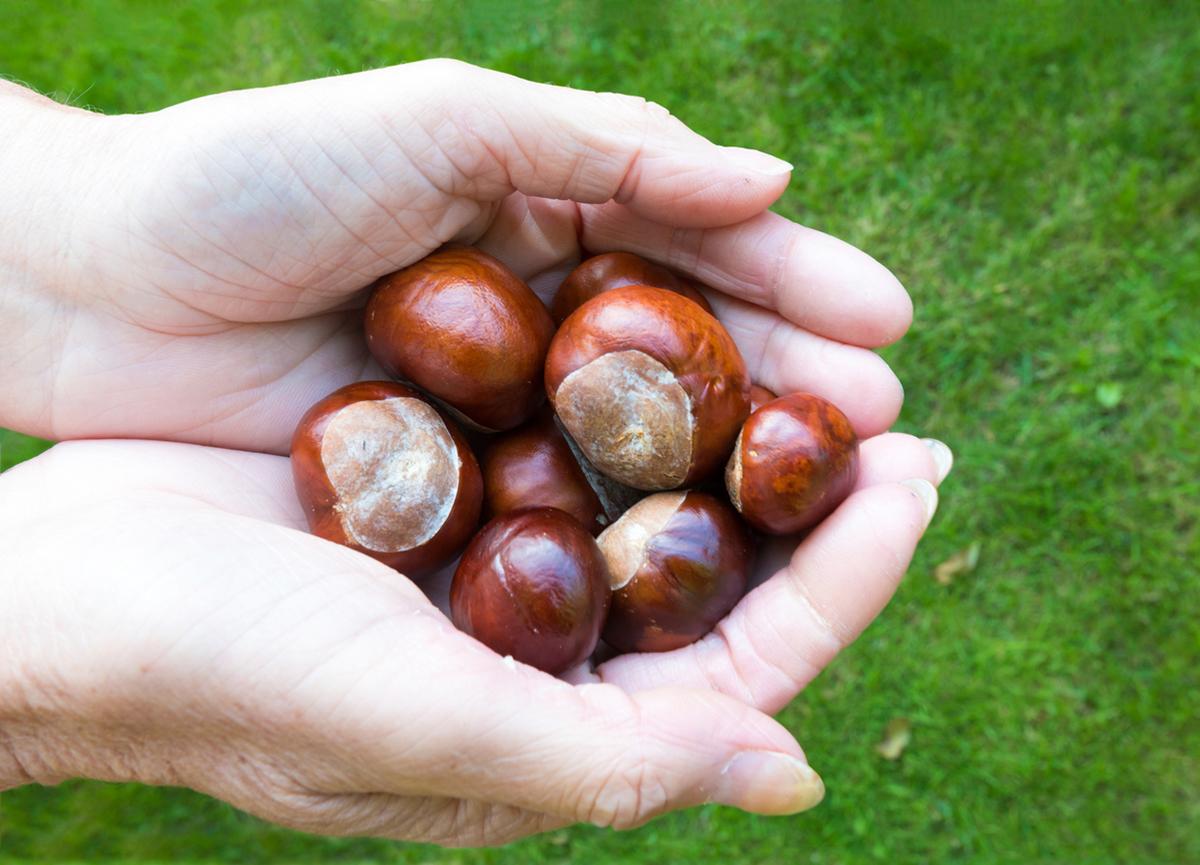
Horse chestnuts — also known as conkers or buckeyes — can be used as a gentle, nontoxic and low-impact alternative to traditional detergents. Chestnuts contain saponins, a naturally occurring, and soap-like chemical compound. (Note: Horse chestnuts are not to be confused with edible chestnuts. This variation is not edible.) To use, wrap about 6 horse chestnuts in a cloth, then use a hammer to turn the nuts into a finer, grainy powder. Combine the shredded chestnuts and one cup of hot water in a mason jar; let it sit overnight. The next day, it will have turned milky. Use a strainer to sort out the larger clumps of chestnut from the “milk.” You can add a few drops of your favorite essential oil for scent. This natural detergent can be kept in the fridge for up to a week.
Introduce Castile Soap
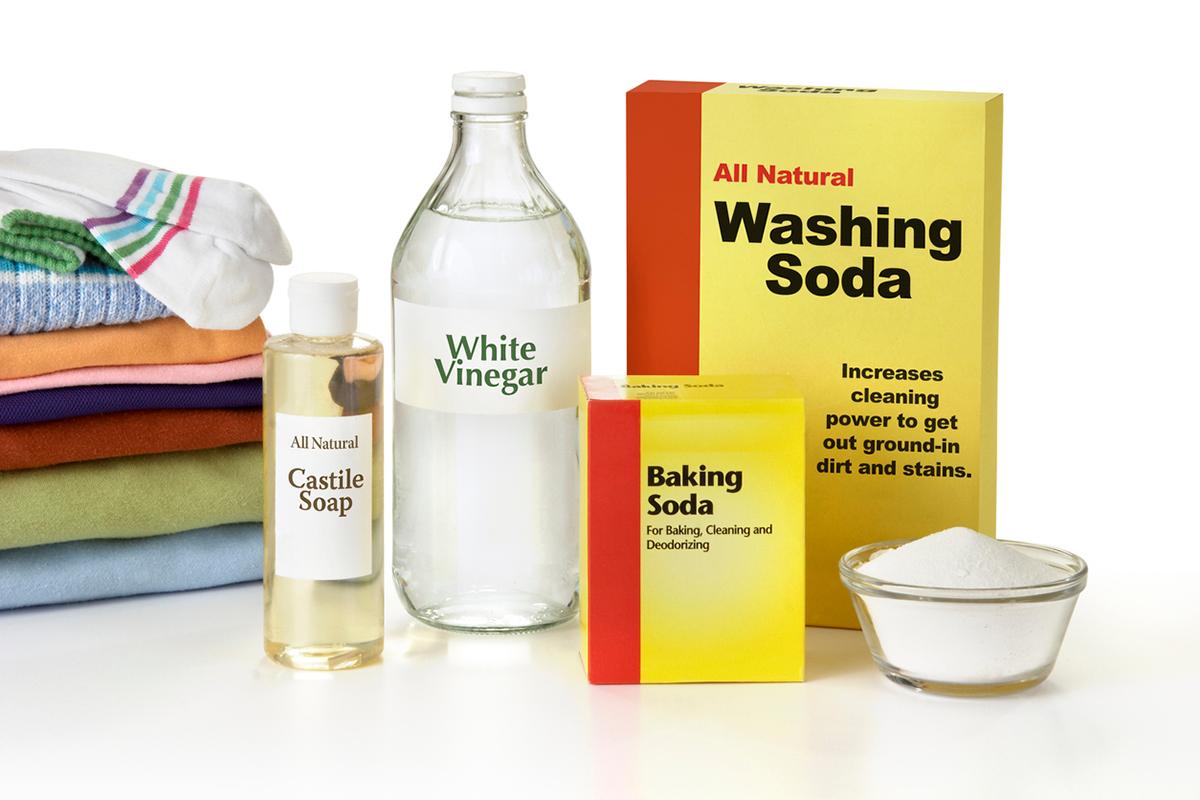
Castile soap is a zero-waste game changer, as it can be used for so many different purposes. For laundry, add one-third cup of castile soap to a regular washing machine. Add one-half cup vinegar during the laundry’s rinse cycle. If you have a high-efficiency washing machine, cut this recipe in half. Castile soap is a vegetable-based soap with a track record of being gentle on the skin and fabrics. It’s natural, nontoxic, and biodegradable. If traditional detergents have caused rashes or irritations to the skin, castile soap might be the ideal option for you.
Use Wool Dryer Balls
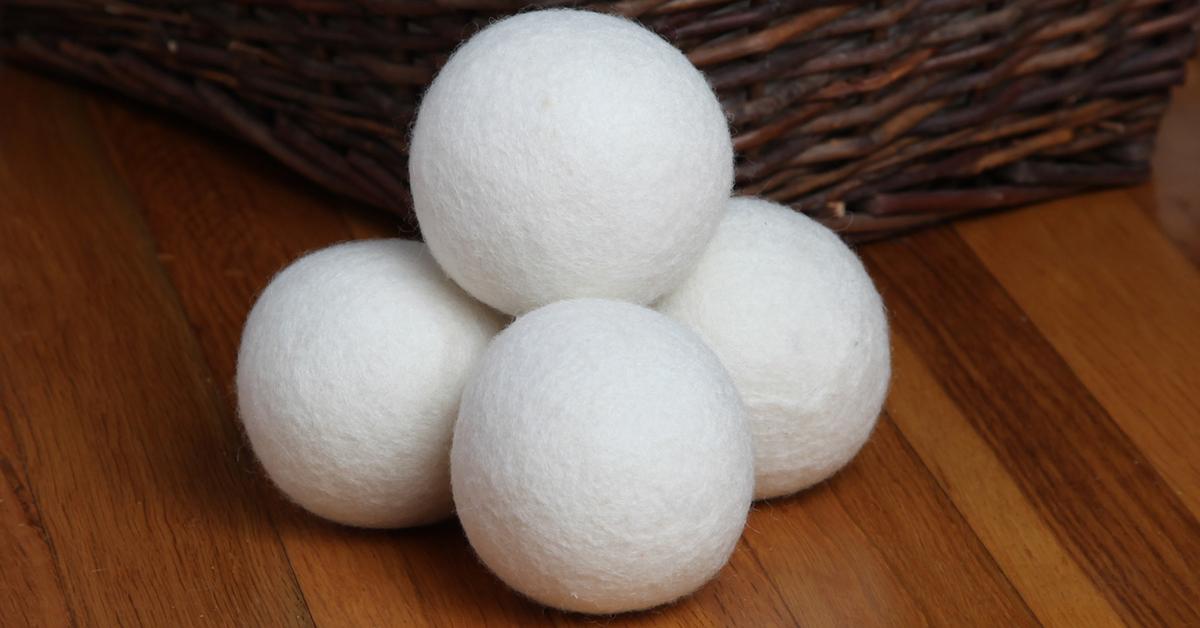
It’s time to ditch the dryer sheets — not only are they single-use, non-biodegradable products that end up in landfills, but dryer sheets can also be toxic. The chemicals used in dryer sheets are known to mimic estrogen, cause asthma, affect the reproductive and nervous systems, halt metabolism, and cause cancer. Have we convinced you? Good. Wool dryer balls are an ethical, nontoxic option that also provides benefits like reducing drying time, wrinkles, and static. To use, cover three dryer balls in the essential oil of your choice, then add to the dryer.
Make Use of Essential Oils
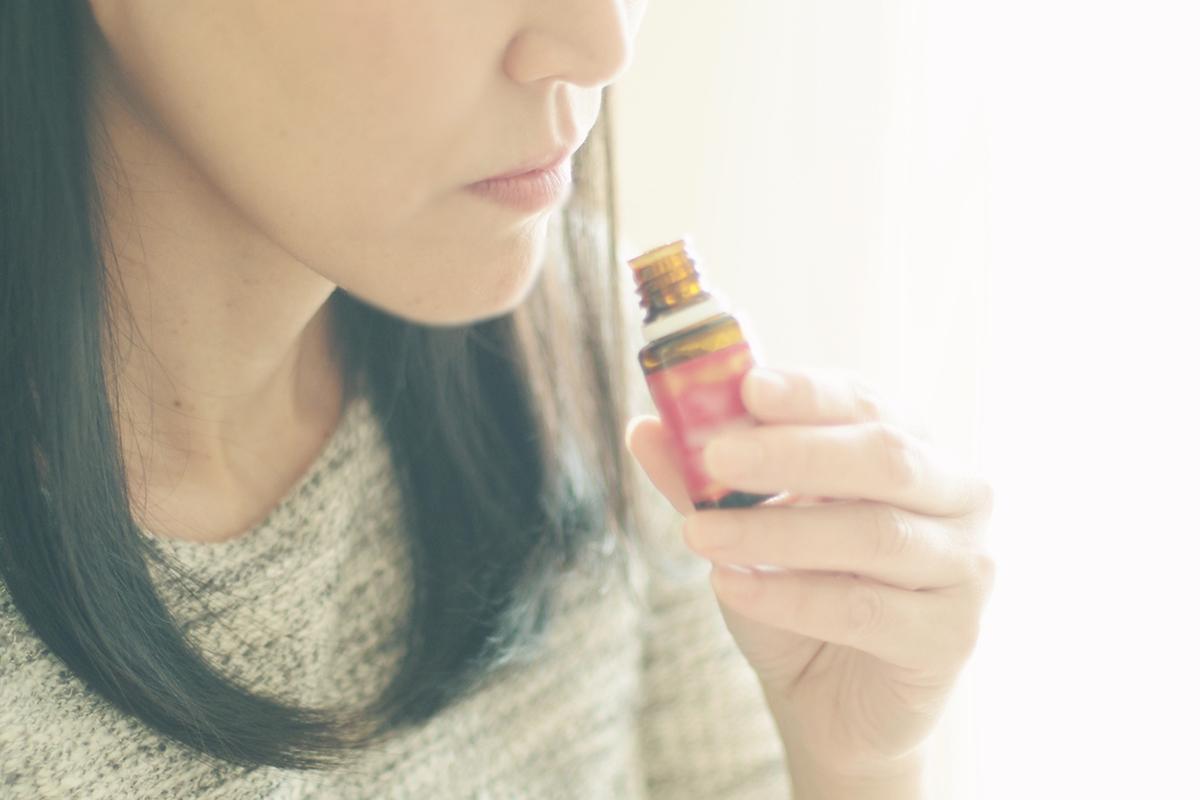
Essential oils can be used in combination with either wool dryer balls or homemade detergents (like the one made from horse chestnuts). Some common essential oils to use in the laundry include lavender (good for sheets or pillow cases as it promotes sleep), eucalyptus (perfect for dog beds and pet toys as it kills mites and fleas), lemon (which removes nasty smells and cuts through grease), and rosemary (disinfects and fights germs).
Line Dry Clothes When Possible
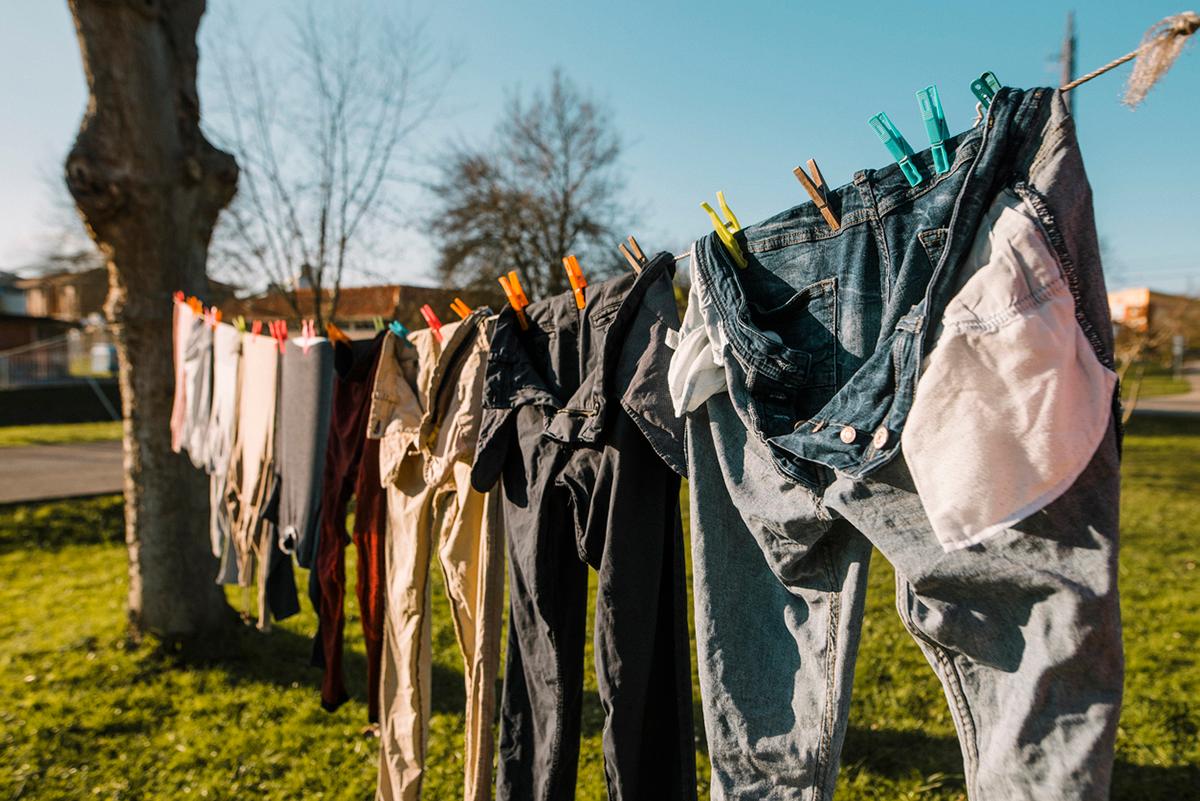
Of course, if you’re willing to completely eliminate the dryer from your laundry routine (at least periodically), that’s one of the most efficient ways to cut back on the energy and pollutants associated with the washing process. Hanging clothes to dry will not only save electricity and reduce wrinkles left in clothes.